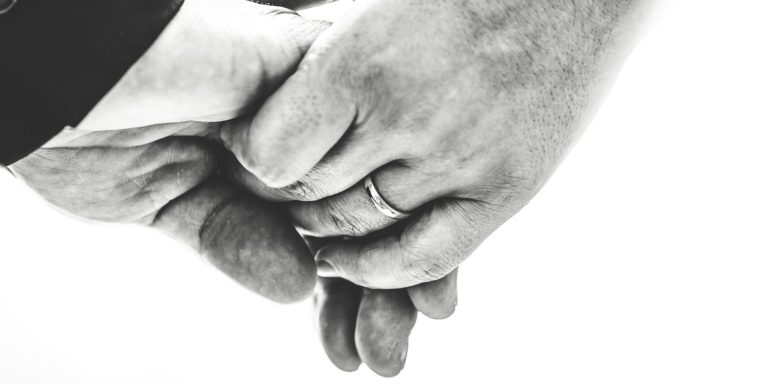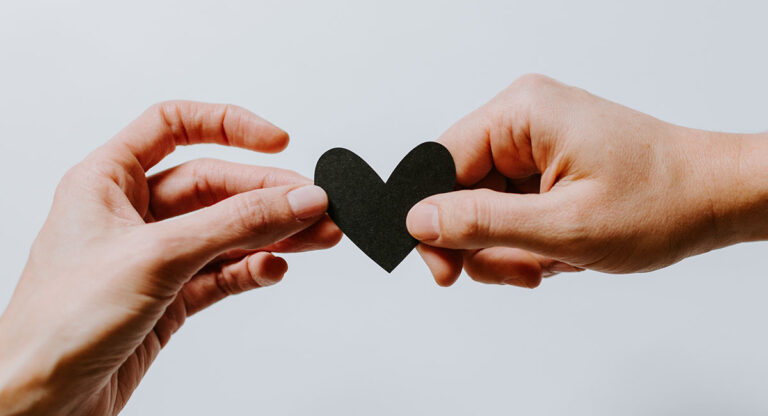
The power of forgiveness
- Sarah Weber
- March 12, 2020
- Comments Off on The power of forgiveness
Links in some blog posts may earn a commission for The Brain Cleanup Coach.
“Forgive others, not because they deserve forgiveness, but because you deserve peace.” – Jonathan Lockwood Hule
Photo by Lina Trochez on Unsplash
We humans like to hold grudges. Actually, let me rephrase that. The egos encased in our reactive minds like to hold grudges. When that part of the brain perceives that someone or something has wronged us, it immediately creates a damn, or wall, about that person in our mind.
It creates a skewed view of looking at and interacting with that person, and as long as we hold onto the grudge, we can only see someone through that skewed lens. We can also develop this skewed lens about ourselves, and often do.
Why we hold grudges
A grudge is just hard-set judgement against something. Whether it’s a person’s actions, or that bird that flew into your head, or the food that “made you” bite your tongue, in the moment that the grievance happened against you, your subconscious mind kicked in to define what just happened, and measure how deeply if affected you emotionally.
The more negative emotion, the stronger the signal in your brain that what just happened was really bad, and that you should label it as such. If that label is then firmly cemented in place by a belief, a grudge is born.
A grudge is just a protective measure. Like I mentioned before, it’s like a damn, or wall put up in your mind, that cuts off interaction with whatever you’re holding a grudge against, in hopes that you won’t have to feel the same negative emotion.
The irony of it all
Now here’s the ironic part. A grudge is created to protect you from negative emotion. But when you hold a grudge, you’re essentially just holding onto a chunk of negative emotion. Instead of someone else being able to make you feel bad, you’re taking control and making yourself feel bad.
For the ego, exercising some form of perceived self control at least makes it feel like you’re in charge of your own being. But if you’re holding a grudge, you’re still allowing someone outside of you to create negative feelings within you. You have to bring them, and the offending instance to mind, in order to feel the grudge.
This means they’re all up in your head, even if they aren’t aware that they’re all up in your head.
How dare they!
Are you starting to see the irony here? Again, your ego creates judgment as a protective measure, but do you really need the protection? Especially if the person you’re holding a grudge against is no longer in your life, or even alive?
How to forgive
Even if consciously you’re beginning to recognize that holding grudges may not be in your best interest emotionally, that doesn’t mean your subconscious mind and ego will readily agree.
If you were raised by humans, have lived with humans, interacted regularly with humans, and are human, you’ve probably been trained to hold grudges. Some of us are inclined to it more than others, but it’s a behavior common among us homo sapiens.
In order to stop holding grudges and forgive, we have to show the ego that there is more emotional benefit to forgiving then there is in holding a grudge. One way is by appealing to our innate desire for freedom.
Grudges are constricting, confining, and keep you stuck in a negative thought loop. Forgiveness (which means letting go of completely or being done with it), creates emotional freedom. No longer is there a damn, or wall, holding the flow of emotional energy back.
Forgiveness is a choice, but your ego will want to hold onto the grudge, because your identity has become comfortable in holding it. It’s likely become part of who you are, and letting go of our identity can be scary, because then who the heck are we?
Another way to possibly forgive is to visually imagine detaching ourselves from the judgments we’ve created against others. In her book “Judgement Detox” Gabrielle Bernstein suggests visualizing a dark tether connecting you to the person you are judging, or hold a grudge against. Now imagine taking a pair of scissors and cutting that tether, so you are no longer bound to that person by that judgment.
Another visual is to imagine all the judgments, or grudges, you have against yourself as if they were balloons tied to you. One by one, cut the strings and let them float away.
Doing this just once likely won’t be a permanent fix, but if you do this visualization on a regular basis, over and over, your brain will eventually start to believe it.
Final Thoughts
Finally, understand that grudges come from grievances, and grievances come from the judgments within your own mind. You are defining what is right by you, or wrong by you, according to your beliefs.
When someone does “wrong by you”, this could lead to a grudge. This comes from your own mind. Your ego might not like hearing this because if this is true, that means ultimately the grudge is your fault, not theirs. That might make you feel a little prickly, but let me tell you why this is really good news.
It means YOU are in control, not them. It means that no matter what they do, you can take control of that computer in your head, define their actions HOWEVER you WANT to, and make an objective, deliberate decision. And if you don’t want to damn up your emotional energy, and create walls to separate yourself from others, you can choose to forgive.
Work with me
Forgiveness, while simple in concept, can be hard to achieve. As a coach I can help you see where your ego is holding onto judgment, and how to let it go.
Book a complimentary consultation with me to start exploring the possibilities.
Or, sign up for my email list for twice weekly coaching straight to your inbox.




